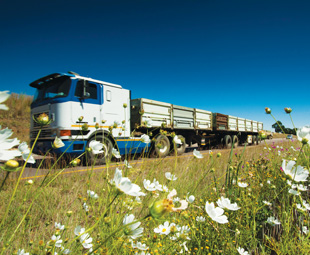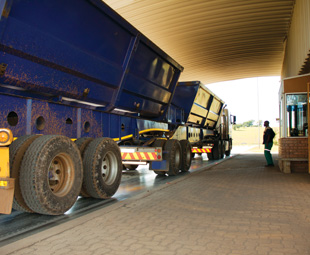Lighten the load

Trans African Concessions (TRAC) is responsible for the 570 km stretch of road between Solomon Mahlangu off-ramp in Tshwane and the Port of Maputo in Mozambique. Through its involvement with Truck Test 2015 (the event will run on this route between Johannesburg and Komatipoort), TRAC is hoping to increase awareness in the industry regarding the dangers of overloading. CLAIRE RENCKEN reports.
Let’s start with a bit of background … TRAC owes its existence to a decision taken in 1994, by the South African government, to develop the so-called national route 4 (N4) – stretching from Tshwane in Gauteng, to Komatipoort in Mpumalanga, and beyond the South African border to the Mozambican capital of Maputo – as part of a wider spatial development initiative for the region, comprising both countries.
Called the Maputo Development Corridor Initiative, the aim was to develop the N4 route to such an extent that it would facilitate the stimulation of trade and investment in the region and provide access to global markets through the Port of Maputo.
The N4 toll route runs over a distance of almost 600 km between Gauteng (starting just east of Tshwane) and the Port of Maputo in Mozambique. There are six toll plazas along the route.
Having signed a concession with the South African National Roads Agency Limited (Sanral), which is the implementation agent for the route, TRAC can charge toll fees to manage, fund, upgrade and maintain the N4 Toll Route in South Africa. It has a similar agreement with the National Roads Administration of Mozambique (Administração Nacional de Estrada (ANE)).
 Overloaded vehicles cause damage to the road surface, which leads to higher maintenance and repair costs and shortens the life of a road. This, in turn, places an additional burden on the state, as well as law-abiding road users, who ultimately carry the costs of the inconsiderate operators who are overloading.
Overloaded vehicles cause damage to the road surface, which leads to higher maintenance and repair costs and shortens the life of a road. This, in turn, places an additional burden on the state, as well as law-abiding road users, who ultimately carry the costs of the inconsiderate operators who are overloading.
A survey, conducted along the N4 Toll Route in 2000, indicated that over 32 percent of the vehicles travelling along the route were overloaded. Since then, TRAC has entered into an operations agreement with Sanral in an attempt to address the issue on its route.
TRAC has no law enforcement rights and, as such, manages 17 weighbridges in the Mpumalanga province and a further two weighbridges in Mozambique, where traffic officers are able to perform their law enforcement role. In Mpumalanga, there are 120 dedicated traffic officers working on this project on a full-time basis.
Since the introduction of these load control centres on the N4 Toll Route, more than three million vehicles have been weighed, and overloading has been significantly reduced on the route. Currently, only nine percent of the average daily heavy vehicle traffic is overloaded and less than two percent of this traffic is illegally overloaded.
However, the problem is still a major concern. “Even though many vehicles are technically not chargeable, as they’re not illegally overloaded, they may still be carrying more than they should. Some operators have become experts at loading within the ‘grace zone’ – we allow a certain amount of grace on the axle, and also on the gross vehicle mass,” explains Thomas Potgieter, manager load control operations at TRAC. Some vehicles also travel on alternative routes in order to avoid the weighbridges.
“Since it is way too expensive to build roads that can accommodate heavier loads, we need to rely on the industry to self-regulate. The new consignee/consignor regulations should also help in this regard.
“One of our main objectives at TRAC is to engage with the industry and shine a light on the problem of overloading. We are going to use Truck Test 2015 as a platform to do so,” says Potgieter.
From a road safety perspective, overloaded vehicles are dangerous, as they require longer distances to brake before coming to a stop. They generate high centrifugal forces in corners, and shifting loads or loss of tyre grip creates an instant safety risk. Overloading of vehicles results in a reduced tyre life, an increased risk of blow-outs and it reduces the driver’s control over the vehicle, thereby increasing the risk of accidents occurring.
With the cooperation of several national, provincial and local government departments, Sanral, the concessionaires and the freight industry, meaningful progress has already been made in combating overloading of heavy vehicles on the national roads throughout South Africa.
“TRAC appreciates the commitment of heavy-vehicle operators to curb overloading. We look forward to continuing to do so in 2015 and beyond,” concludes Potgieter.
Published by
Focus on Transport
focusmagsa




